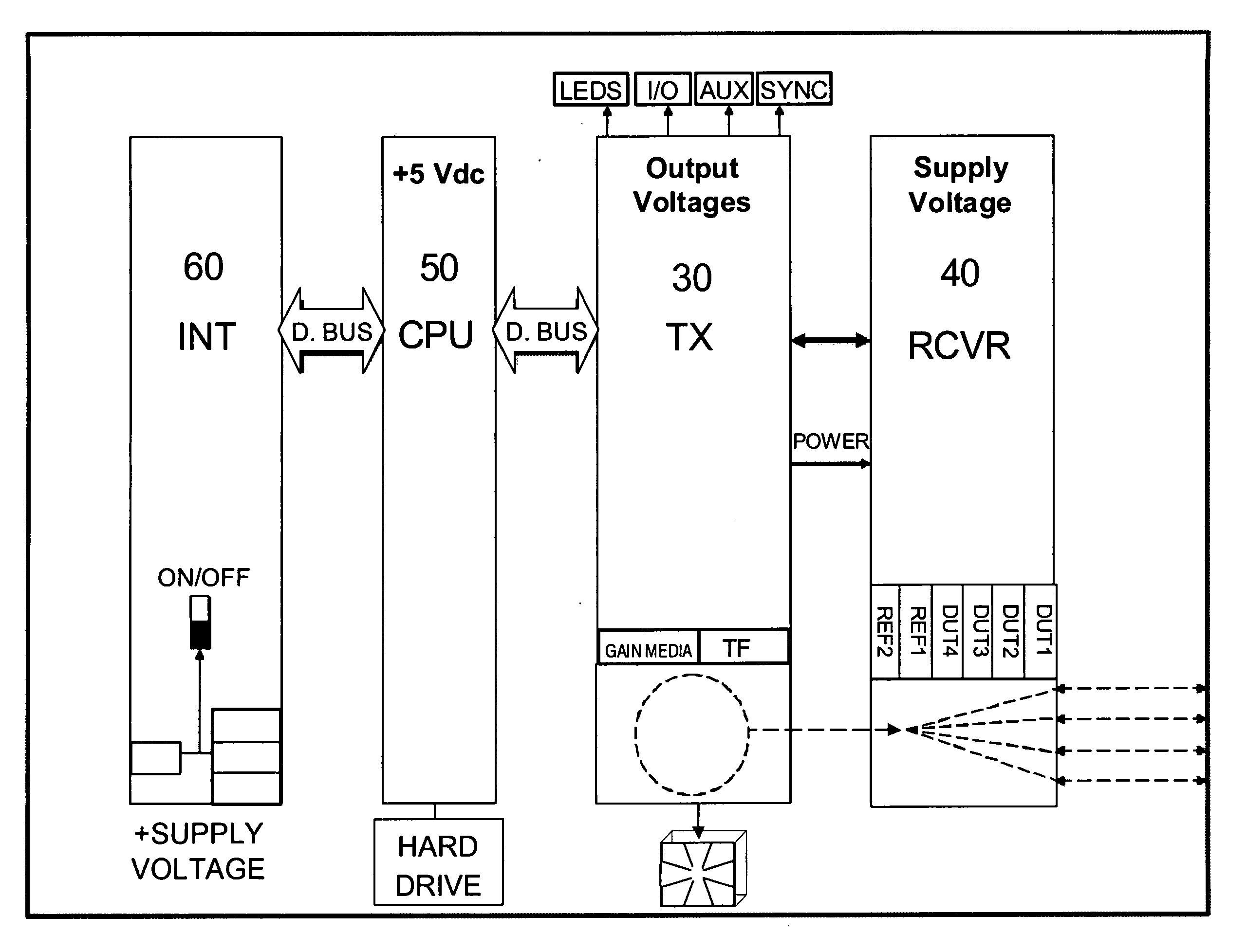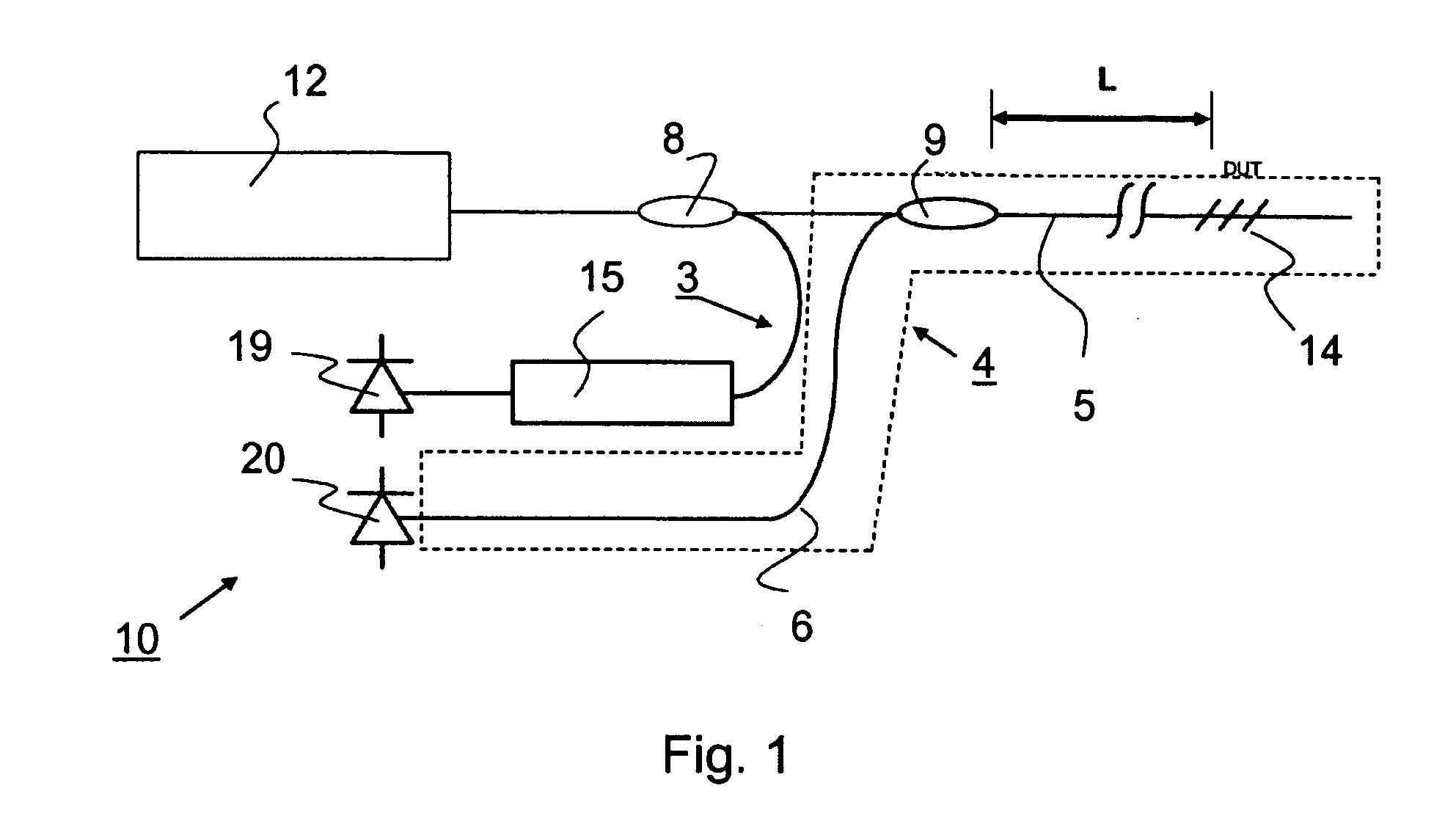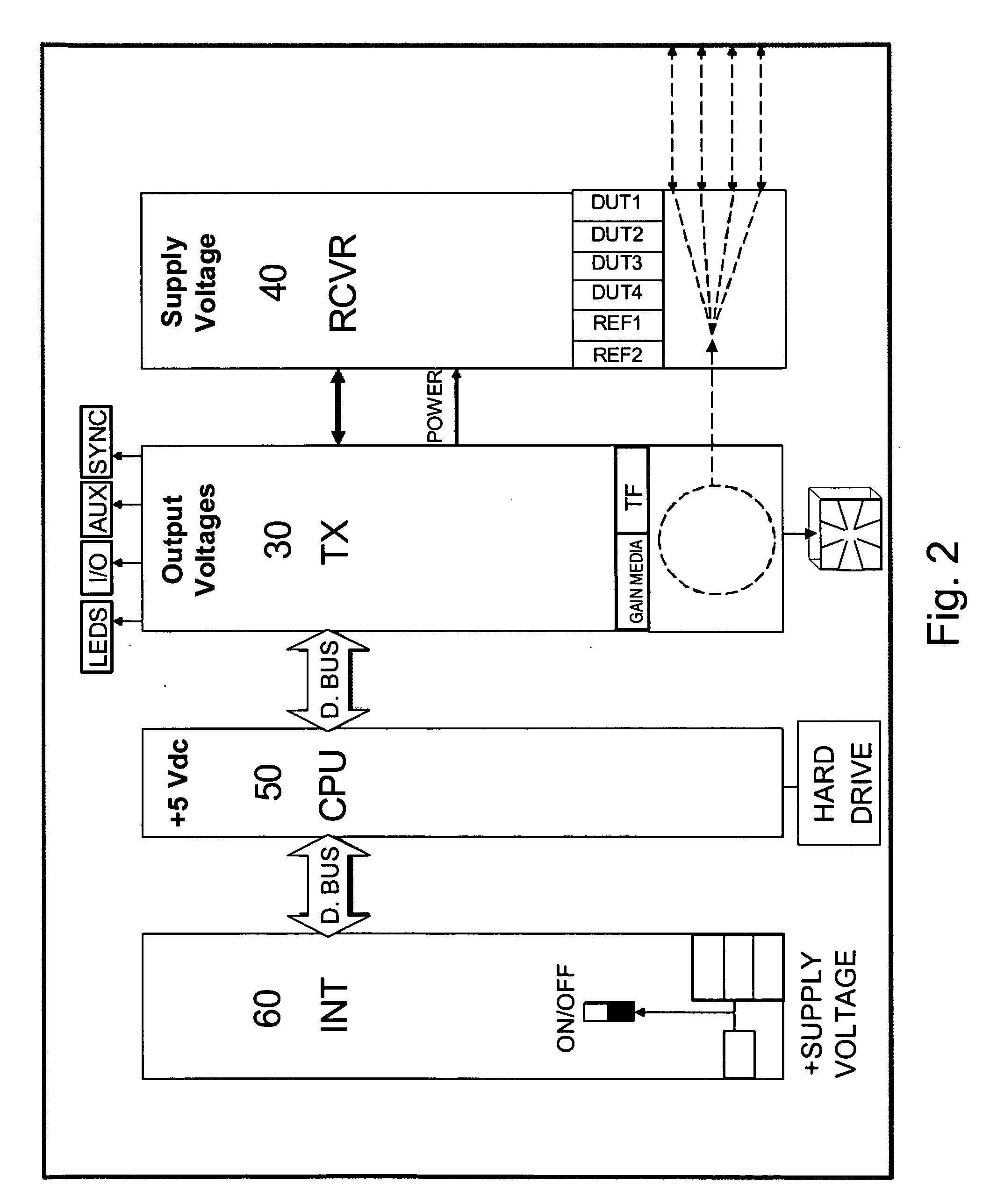Method and Apparatus for Multiple Scan Rate Swept Wavelength Laser-Based Optical Sensor Interrogation System with Optical Path Length Measurement Capability
a technology of optical path length and interrogation system, which is applied in the direction of optical radiation measurement, counting objects on conveyors, instruments, etc., can solve the problem of delay in the return of optical signals to the detection circuitry, and achieve accurate measurement of sensor wavelength and accurate measurement of physical distance from the interrogation system
- Summary
- Abstract
- Description
- Claims
- Application Information
AI Technical Summary
Benefits of technology
Problems solved by technology
Method used
Image
Examples
Embodiment Construction
[0027]“Swept Optical Source” or Swept Wavelength Optical Source” refers to a class of optical sources that output a narrow optical spectrum that can be electrically or mechanically tuned over a relatively wide wavelength range, generally 40 nm or more. Of particular interest for sensing applications are those sources which provide wavelengths within the 1.5 μm wavelength range. Examples of swept wavelength optical sources that can be used in the present invention include swept wavelength fiber lasers, external cavity swept wavelength lasers, distributed Bragg reflector lasers (DBRLs) and broadband sources which in combination with tunable filters provide swept wavelength optical sources. Exemplary external cavity swept wavelength lasers, include among others, those described in U.S. Pat. No. 6,594,289. Broadband sources such as superluminescent LED sources (SLED), as exemplified in U.S. Pat. No. 4,730,331, and superradiant sources, such as exemplified in U.S. Pat. No. 4,637,025, can...
PUM
 Login to View More
Login to View More Abstract
Description
Claims
Application Information
 Login to View More
Login to View More - R&D
- Intellectual Property
- Life Sciences
- Materials
- Tech Scout
- Unparalleled Data Quality
- Higher Quality Content
- 60% Fewer Hallucinations
Browse by: Latest US Patents, China's latest patents, Technical Efficacy Thesaurus, Application Domain, Technology Topic, Popular Technical Reports.
© 2025 PatSnap. All rights reserved.Legal|Privacy policy|Modern Slavery Act Transparency Statement|Sitemap|About US| Contact US: help@patsnap.com



